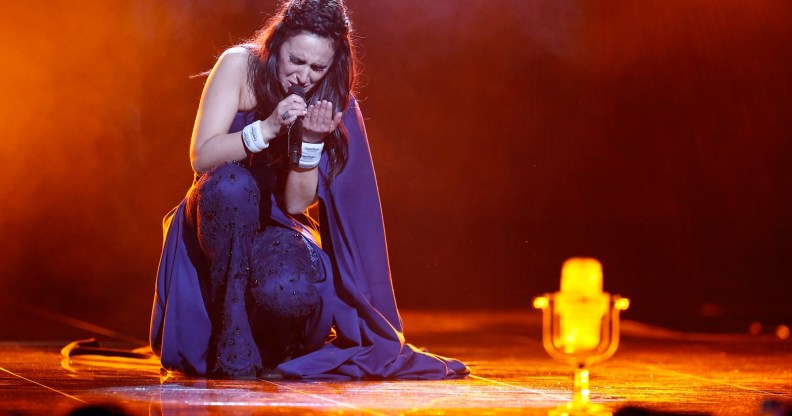Eurovision bosses insist Ukraine ‘didn’t break rules’ by performing song a YEAR before contest

Eurovision organisers have insisted that Ukraine’s Jamala did not break contest rules – after it emerged her winning song had been performed more than a year before the pan-European music contest.
The Ukrainian singer took the Eurovision Song Contest trophy on Saturday with her song ‘1944’, referencing the persecution of the Crimean Tartars amid tensions with Russia.
She took 534 points on the night ahead of Australia’s Dami Im on 511 points and Russia’s Sergey Lavarev on 491.
However, it has since emerged that the song had been performed at least as early as May 2015 – a full year before her win.
The contest’s rules state that songs must not have been given a commercial release any earlier than the previous September, meaning tracks released a year before would be ineligible.
But YouTube clips uploaded in May 2015 – which have now been swiftly pulled offline – featured a handheld recording of a woman who appears to be Jamala performing the same track at a concert under the far more politically-charged title of ‘Our Crimea’.
The song itself is near-identical to the version that won Eurovision – though some lyrics changed for the English translation.
However, the European Broadcasting Union insists that Ukraine had not broken the rules – as the performance of the track captured on video did not qualify as a commercial release.
In a statement, the European Broadcast Union insisted: “The Eurovision Song Contest rule (1.2.1a) which states that entries must not have been commercially released before September 1 exists to make sure that the Contest can welcome new compositions each year, and that every song can compete on a level playing field”
It adds: “In the case of Jamala’s ‘1944’ the EBU’s attention has been drawn, after the 2016 Eurovision Song Contest, to a public performance of an earlier version of the song in May 2015.
“The video of a small concert had only been viewed by a few hundred people before it was discovered in the past few days.
“The EBU, based on previous decisions in the Reference Group, therefore has concluded that the published video did not give Jamala’s song any unfair advantage in the 2016 Eurovision Song Contest and the song was eligible to compete.”
It is the second time in just days that Eurovision bosses have been forced to defend the 2016 result.
They stepped in earlier this week to defend the new voting system – after number-crunchers confirmed it had changed the winner of the contest.
If the 2015 voting system had been used, Australia’s Dami Im would have taken the trophy by a few points – but due to mathematical quirks of 2016’s double-points system, Jamala managed to pull ahead.
Ahead of the changes, Eurovision organisers had insisted they were purely cosmetic and could not alter the result.

